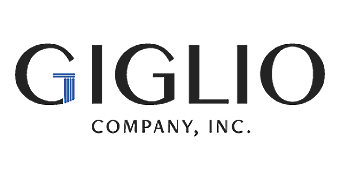The 10 Worst Probing Questions
Every time I work with an executive or a sales team, I stress the importance of probing questions. They are open-ended questions that get you to a deeper level of understanding of your client’s business. They also give you a subtle opportunity to show that you’ve done your homework by asking well-researched questions. Feedback I get from business leaders is they wish more people would take the time to ask these types of questions since they lead to far more productive questions.
I’ve already written a blog post about probing questions (click on that link to read it!). But, there are good ones and bad ones. The latter is my focus right now since I’ve heard so many of them lately! So, here are the worst ones:
- How’s business? You should know this already. At the very least, you should understand industry trends and market conditions affecting your client’s business. You may not know the particulars of their business, but you should be able to have an intelligent conversation about the industry.
- What are your goals for this year? If you’ve done your due diligence, including talking to lower-level executives and studying the industry, you should have a pretty good idea about their goals. And don’t most company’s goals boil down to a) grow the business, b) increase sales, and c) reduce expenses? You need to get to why they haven’t achieved those goals yet.
- Who is your competition? Now you’re just being lazy. Google the business and the industry. Check out LinkedIn. Find news articles and quotes from company executives. The internet has made all of that information readily available so, find it!
- What makes your product good? Again, a basic homework chore. If possible, try the product. Seek out reviews of the company and its service. Study how they present their product or service on their web site and social media. You can easily determine what THEY think their advantage is, whether that’s accurate or not.
- Has your product been successful in the past? First, this is a close question easily answer with “yes” or “no.” Second, you need to know this ahead of time. It’s history…look it up! If you can’t find out on your own, find people connected to the industry and ask their opinion. You can use what they say as part of your presentation later on, again demonstrating your tenacity in researching this client.
- Who is your customer? “Everybody. Next question!” It is critical that you know who their customer is so that when you are presenting your recommendations, you know you are touching key points that address key needs of their customers. Social media postings are a great source of information and tone regarding how a company interacts with its customers. Use it to find out who they are targeting.
- Is there anyone else in the company I need to see? Translated: I want to know if there is someone more important than you I should have met with! There is almost always someone else to see. But you need this first contact to help shepherd you through the process. Better to ask “Who else would be appropriate for me to meet to determine their opinion as we move forward together?”
- Would you like this information that I prepared for you? If you didn’t think they needed it, why did you prepare it? Likely, you believed that it was useful so, give it to them. The only time not to is if, in the course of your discussion, you determine that some of the information is off the mark and now doesn’t make your points strongly. In that case, offer to edit the information you prepared and get it to them quickly.
- Do you have a sense of the problems your company faces this year? Some might think this a good question. I don’t. Of course they know the problems they are facing…it’s what keeps them up at night! But, if you probe about long-term issues and immediate problems, now you have an opportunity to solve the latter quickly and partner on the former over the long haul.
- What do you see as the next step? If they were honest with you, they might say, “Well…probably we will all say goodbye here and then I will walk out to about 100 new problems that have come up since we’ve been talking. It’s unlikely I’ll remember this meeting at the end of the day.” YOU need to know the next steps and strongly present them, letting them know you will be managing the follow up and driving this to a conclusion. Most clients appreciate someone who can take the proverbial ball and run with it.
Avoid these questions and you’ll be a step ahead of your competition (who are likely asking some or all of them!).
Which of these are you going to eliminate from your next client encounter? Let me know by replying below. – SG

 In my last post, I listed the
In my last post, I listed the 